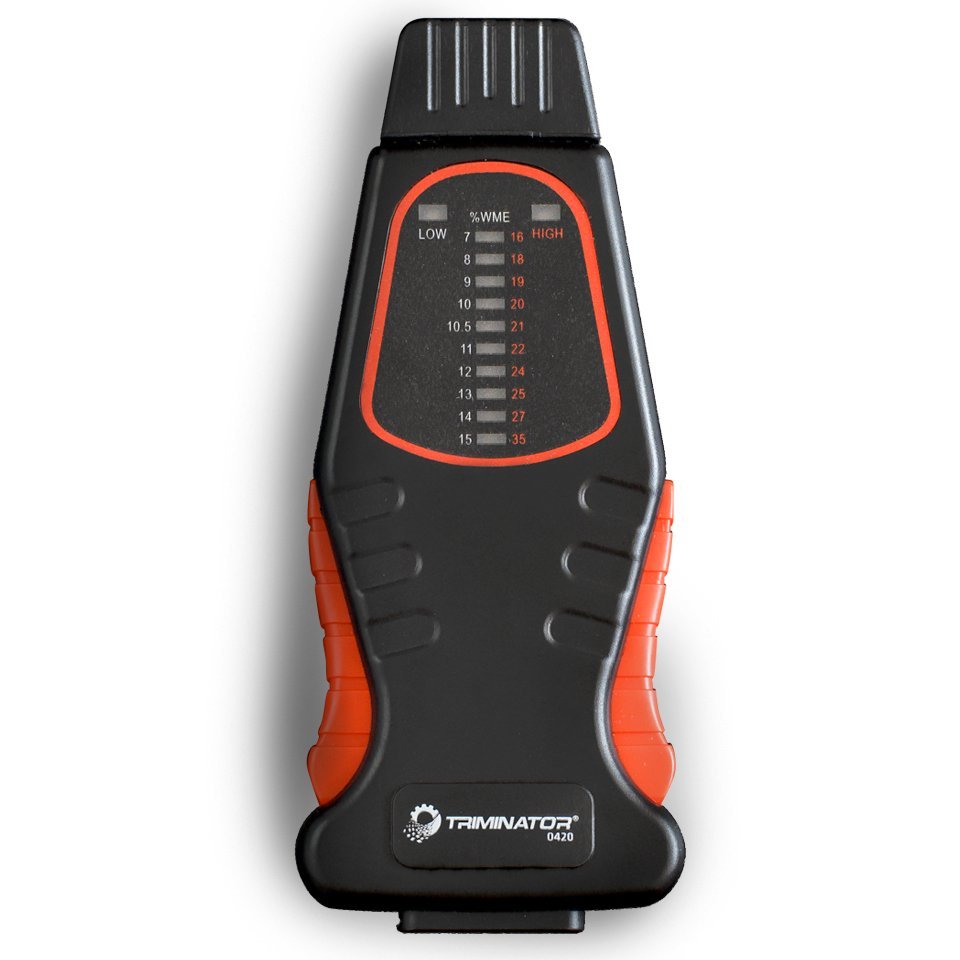Moisture Meter Reviews: Comparing the very best Versions for Professional and Do It Yourself Usage
Moisture Meter Reviews: Comparing the very best Versions for Professional and Do It Yourself Usage
Blog Article
The Ultimate Overview to Moisture Meters: A Comprehensive Introduction and Exactly How They Can Save You Cash
In the realm of building upkeep, building, and numerous industries, the value of properly determining dampness levels can not be overstated. Wetness meters offer as vital devices in spotting and keeping an eye on moisture content in materials, assisting in avoiding costly problems and ensuring the top quality of products. Recognizing the nuances of various types of dampness meters, their applications, and the prospective cost-saving advantages they provide can be a game-changer for companies and specialists alike. Finding just how these gadgets can not just streamline procedures but additionally add to monetary savings is a trip worth embarking on.
Sorts Of Dampness Meters
Various kinds of dampness meters are available for different applications in different industries. One typical kind is the pin-type dampness meter, which determines the electrical resistance in between two pins inserted right into a product. This type appropriates for wood, drywall, and other structure materials. Pinless wetness meters, on the other hand, usage electromagnetic sensor plates to check a bigger area without triggering damages to the material's surface. Moisture Meter. These meters are perfect for rapidly assessing dampness levels in huge locations such as wall surfaces and floorings.

Infrared dampness meters gauge the thermal residential properties of a material to identify its wetness web content non-invasively, making them helpful for applications where pin or pinless meters may not be suitable. Recognizing the different kinds of dampness meters readily available can help industries choose the most proper device for their details dampness measurement requirements.

Benefits of Making Use Of Wetness Meters
Moisture meters supply indispensable advantages in properly checking and analyzing dampness degrees in varied materials and environments. One of the primary advantages of making use of dampness meters is the avoidance of prospective damage triggered by excess dampness.
In addition, making use of wetness meters can bring about boosted power performance. By identifying locations with high moisture degrees, such as leakages or bad insulation, adjustments can be made to enhance energy preservation and decrease utility costs. In farming setups, dampness meters play a critical function in enhancing plant yields by making it possible for farmers to monitor soil moisture levels and make educated watering choices. Overall, the advantages of making use of moisture meters span across different sectors, supplying cost-effective solutions and promoting far better quality assurance methods.
How to Choose the Right Moisture Meter
Picking the proper dampness meter entails taking into consideration key aspects such as material compatibility, measurement array, and calibration accuracy. When selecting a moisture meter, it's vital to ensure that the meter appropriates for the certain material you will certainly be testing. Various products have varying electrical residential properties that can influence wetness readings, so choosing a meter this link developed for your material is you can look here crucial for exact outcomes. Furthermore, think about the dimension variety of the wetness meter. Guarantee that the meter can detect wetness levels within the array needed for your applications. Calibration precision is another vital element to keep in mind. Choose for a moisture meter with dependable calibration to make sure accurate and consistent readings. Some meters may need periodic calibration changes, so recognizing the calibration process is essential. By meticulously assessing these aspects, you can choose a moisture meter that satisfies your needs and supplies exact wetness measurements for your tasks.
Appropriate Strategies for Wetness Meter Use

Price Savings Through Dampness Meter Applications
Exactly how can the strategic use of wetness meters result in considerable expense savings throughout various sectors? Wetness meters play an essential role in expense savings by protecting against potential damage and guaranteeing quality control in different sectors. In the farming market, dampness meters help in determining the optimal time for gathering crops, avoiding over-drying or excess moisture that can affect the end product's quality. This specific monitoring assists farmers prevent unnecessary losses and optimize their return.
Similarly, in building and construction, dampness meters aid prevent pricey damages by discovering moisture degrees in building materials, such as wood or concrete, which can cause architectural issues otherwise addressed immediately. By determining problem locations early on, specialists can take rehabilitative procedures to prevent substantial repairs website link or replacements, inevitably saving time and money.
In addition, in the food processing market, moisture meters are crucial for monitoring product top quality and guaranteeing conformity with safety guidelines. By accurately measuring moisture material in foodstuff, suppliers can stop spoilage, preserve freshness, and decrease waste, resulting in significant cost financial savings. Generally, the tactical application of moisture meters is an important financial investment that can lead to considerable cost decreases and enhanced performance across various industries.
Conclusion
In final thought, moisture meters are beneficial tools for determining and discovering moisture degrees in different materials. By making use of the best dampness meter and adhering to appropriate techniques, customers can efficiently prevent expensive damages caused by excess moisture.
Wetness meters serve as important tools in detecting and checking moisture material in materials, aiding in protecting against costly problems and guaranteeing the quality of items. Infrared moisture meters determine the thermal buildings of a material to establish its moisture material non-invasively, making them useful for applications where pin or pinless meters may not be ideal.Moisture meters use important advantages in properly evaluating and checking dampness levels in diverse materials and atmospheres. In farming settings, moisture meters play a crucial function in optimizing crop returns by making it possible for farmers to keep an eye on dirt dampness degrees and make notified irrigation choices.In verdict, wetness meters are beneficial devices for identifying and gauging dampness levels in numerous products.
Report this page